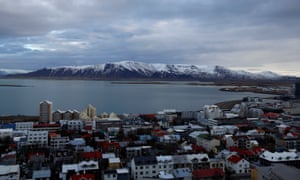Digital democracy: lessons from Brazil, Iceland and Spain

This article talks about digital technology offering democracy anything other than trouble? Concerns are growing that platforms like Facebook and Twitter help create partisan echo chambers, spread fake news and render intelligent argument impossible when clicks are valued more than facts.
-more than 70,000 people have visited the website – out of a population of 120,000.
-Meanwhile, the Brazilian parliament has created ‘e-Democracia’, an online portal that lets people contribute to parliamentary debates.
I believe the internet strengthens democracy because it allows the general public to contribute to political discussions and scrutinise the government outside of elections which are (in the uk) held every 5 years which some would argue is too long. Moreover, groups like the 38 degrees embody this idea as they promote e-democracy by creating petitions and getting young people involved in politics. Moreover, petitions to attract the attention of government are held online where they can potentially reach and be seen by more people.
No comments:
Post a Comment